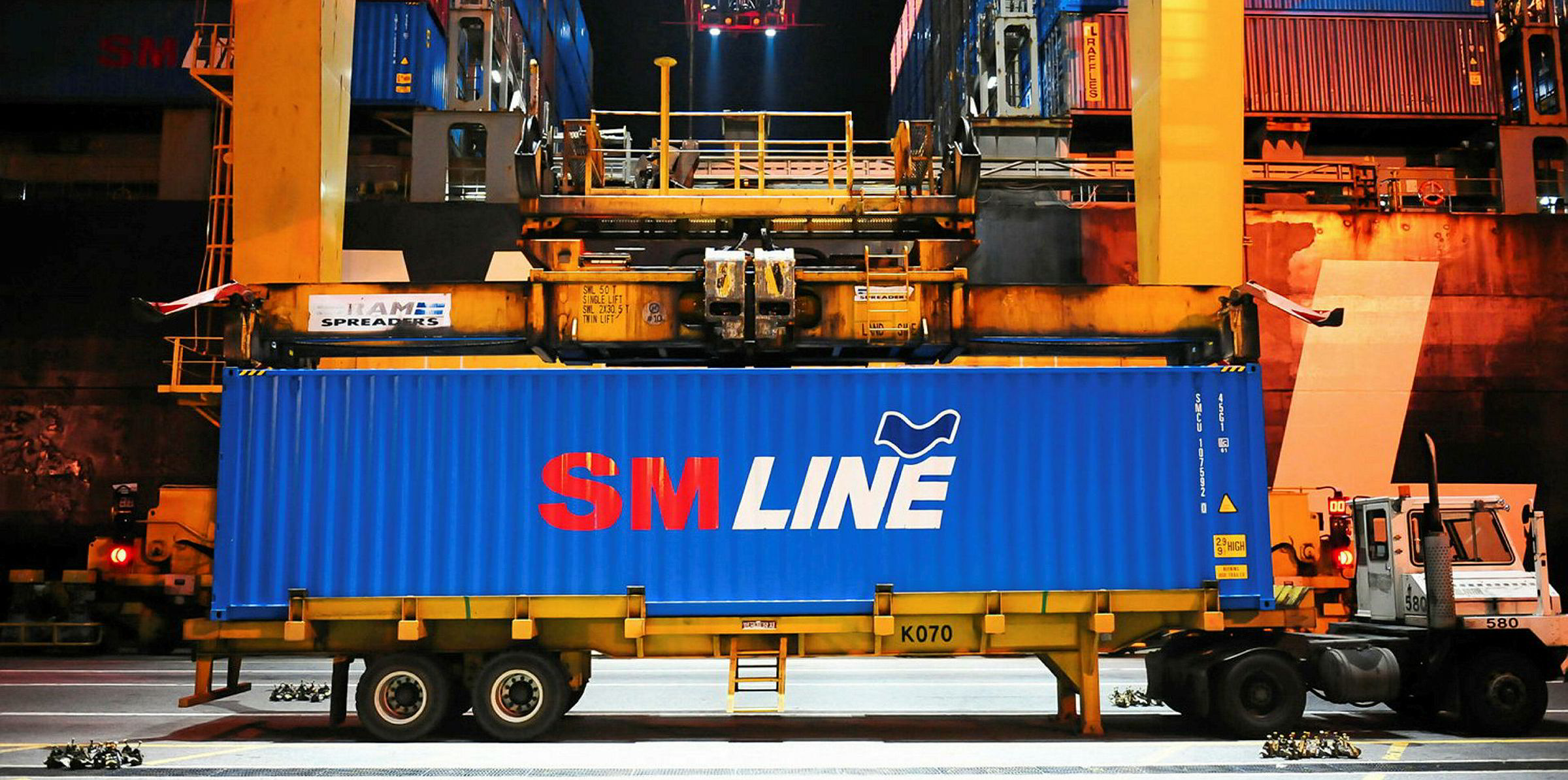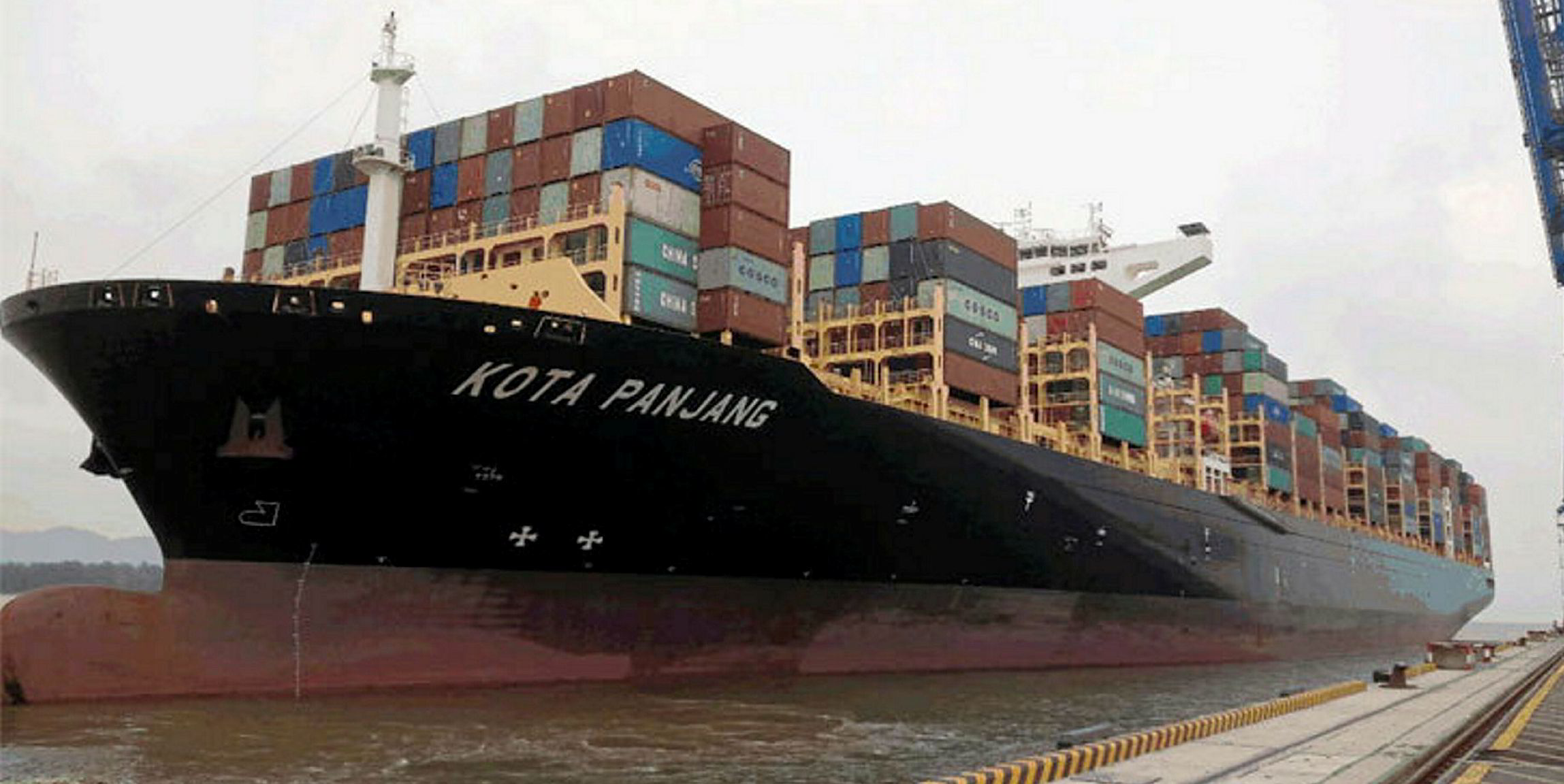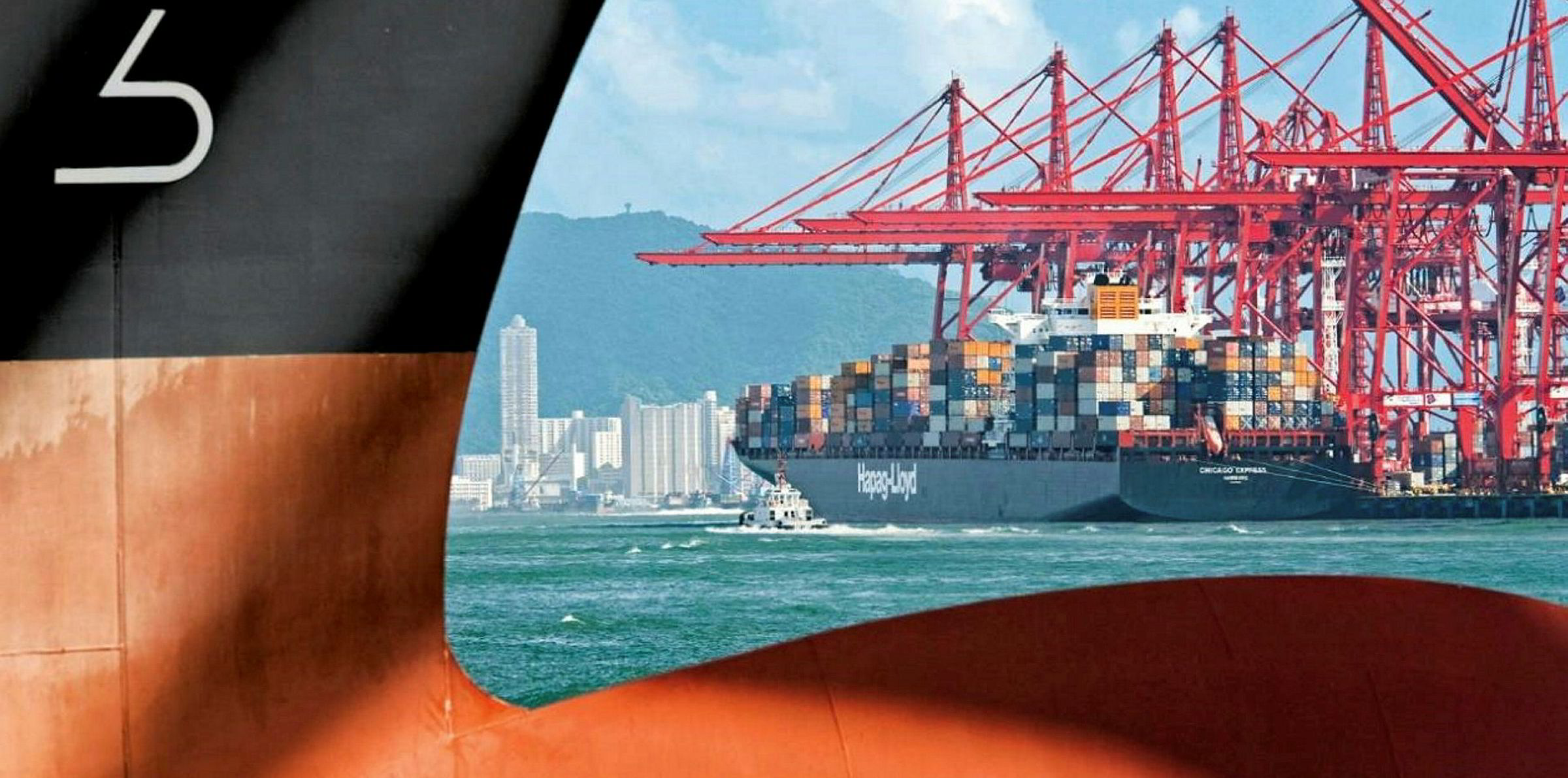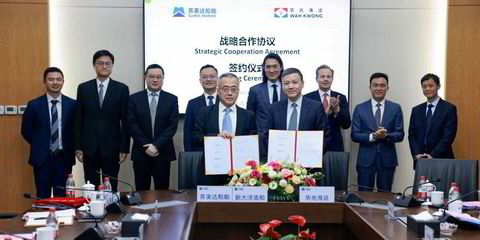SM Line is to join boxship giants Maersk and Mediterranean Shipping Co (MSC) on a service loop between Asia and the US from 1 April.
The South Korean outfit believes the move will not only help it to achieve efficiencies, drive down operating costs and "carry a lot more cargoes", but shore up the country's reputation in the container sector.
“The company strongly believes its presence in the containership sector will be strengthened when it joins forces with the world’s two-largest containership companies,” an executive told TradeWinds, on the basis of anonymity.
PIL withdrawal
The move follows Singapore’s Pacific International Lines (PIL)'s announcement earlier this month that in March it would withdraw from the service loop it had started 15 years ago.
SM Line currently services the transpacific trade by operating six 6,655-teu ships on its China Pacific Express.
Under the tie-up, SM Line will not purchase slots from the 2M Alliance, but swap two of its panamax containerships for a pair of 11,000-teu ships from 2M.
“SM Line believe the partnership with 2M will help to alleviate South Korea’s reputation in the containership sector after the demise of Hanjin Shipping in 2016,” the executive added.
The partnership agreement with Maersk and MSC will be valid until March 2023.
SM Line was launched in 2018 after South Korean conglomerate Samra Midas Group bought assets from defunct Hanjin, once the country’s largest container line.
It operates 19 boxships of up to 8,600 teu, plus a bulker.
Meanwhile, PIL is terminating its transpacific services after it runs its final port rotation next month.
Strategic review
The company said the move was part of a wider strategic review.
An industry player said PIL had tied up service agreements with other liner companies and that the contract would expire in late March.
According to Alphaliner, PIL participates in six Far East to US West coast services, of which four are through slots on Ocean Alliance loops.
Another two services are via a vessel-sharing agreement with Cosco Shipping Lines and Wan Hai Lines.
The US-China trade war is causing severe problems for transpacific liner operators that have been experiencing declining volumes and rates.
Last year saw the first annual drop in container volumes in almost 10 years.
“Given the current situation of the global trade and the effects of the Covid-19 coronavirus on shipping, it may be a good time to exit from the business,” an industry player told TradeWinds.
“After all, PIL is a small player in the transpacific trade as it only operates two vessels.”
Going forward, PIL's focus will be on strengthening its position further in its niche North-South trades, such as Africa, the Middle East, Red Sea, Indian subcontinent, Latin America, and Oceania.
These trades have long been the company’s core business, where it enjoys a strong market share.
“PIL’s latest move marks an end to its ambition to be a truly global carrier. In the context, it is worth recalling that after a 15-year involvement that started in April 2004, the shipping line had already pulled out of the Asia-North Europe trade in 2019,” Alphaliner said.






